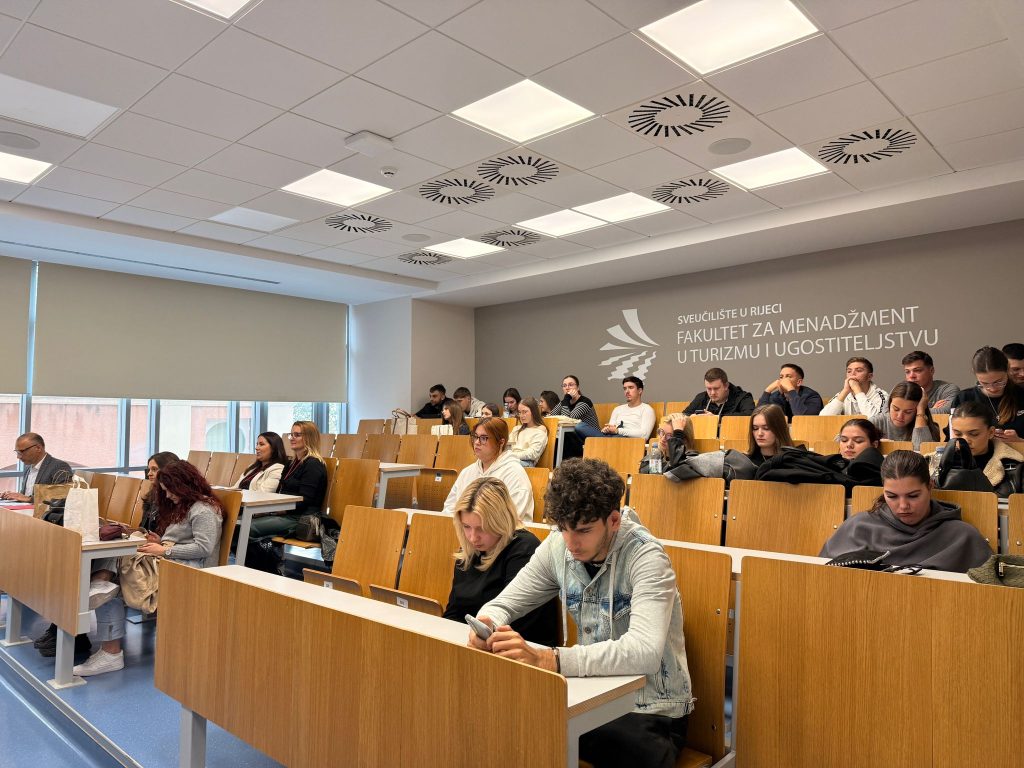As part of the CROCUS project – “Cross-Border Cultural and Creative Tourism in Rural and Remote Areas,” a panel discussion titled “Rural Development in a Cross-Border Tourist Destination” was held on 13 November 2025 at the Faculty of Tourism and Hospitality Management in Opatija. CROCUS is a project funded by the Horizon Europe programme (HORIZON-CL2-2023-HERITAGE-01) within Cluster 2 – Culture, Creativity and Inclusive Society.
The panel “Rural Development in a Cross-Border Tourist Destination” focused on discussing the potential of tourism in the development of rural areas, particularly cultural and creative tourism in regions connected—but also divided—by border lines. The aim was not only to analyse the current situation, but also to explore ways and present proposals on how tourism can become a driver of sustainable rural development.
The panel discussion was moderated by Dr. Elena Rudan, professor at the Faculty of Tourism and Hospitality Management, and brought together panelists connected through tourism, rural values, tradition, entrepreneurship, and destination organisations. The very dynamic discussion included:
- Dijana Katica, MSc, President of the Croatian Association for Tourism and Rural Development “Club of Village Members,” member of the Tourism Committee of the Croatian Parliament, director of the SUNCOKRET rural tourism project, director of Iter Vitis Croatia, and member of the Management Board of the European wine cultural route Iter Vitis Route.
- Assoc. Prof. Robert Doričić, PhD, Department of Social Sciences and Humanities in Medicine, Faculty of Medicine, Department of Public Health, Faculty of Health Studies, University of Rijeka. A member of numerous associations involved in researching traditional values of rural border areas, especially the Žejane–Mune region, including the Žejane language.
- Patricia Rumac, entrepreneur and owner of the family farm OPG Maćuki, Poljane, and one of the participants in the Feel & Taste Opatija Riviera project.
- Dejan Iskra, Regional Destination Organisation, Postojna Cave – Green Karst, Slovenia.
The panelists discussed proposals that support balanced development, strengthen local identity, and create new opportunities for living and working in rural cross-border areas. The challenges of the current situation, as well as the exploration of tourism’s potential for rural development—especially in areas connected yet separated by borders—encouraged participants to jointly reflect on sustainable cooperation models that can overcome barriers and strengthen local communities in the long term.






